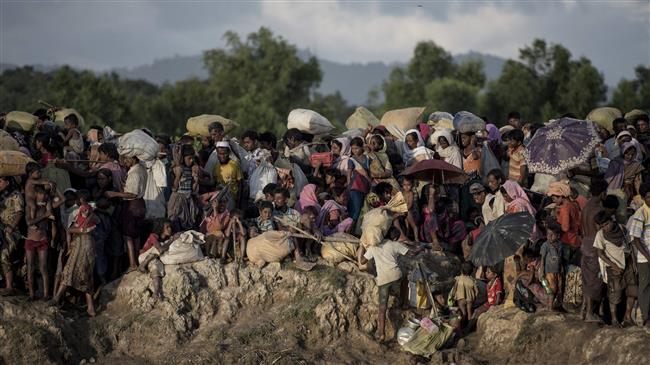
RNA - The two sides agreed in January to complete a voluntary repatriation of the refugees over a two-year period. The repatriation, however, was delayed due to a lack of preparation as well as protests staged by Rohingya refugees against the plan to send them back to Myanmar while conditions were not safe for their return.
Bangladesh and Myanmar government officials announced this week they had struck a “very concrete” repatriation deal for the return of the 720,000 Rohingya refugees who fled a brutal state-sponsored military crackdown in August 2017 and crossed into Bangladesh, where they live in overcrowded camps with limited access to food, medicine and education.
The repatriation would begin with 2,000 returnees in “mid-November.”
In reaction to the announcement, Stephane Dujarric, a spokesman for the UN Secretary General Antonio Guterres, however, said the bilateral agreement had taken the UN high commissioner for refugees (UNHCR) by surprise.
“To be clear… UNHCR, which is in lead on the issues of refugees, was not consulted on this matter,” Dujarric said at a Wednesday daily press briefing given by the secretary general’s office.
“For UNHCR, the conditions in Rakhine state are not yet conducive for a return to Myanmar,” Dujarric noted. “And, at the same time, we’re seeing Rohingya refugees continue to arrive from Rakhine state into [Bangladesh], which should give you an indication of the situation on the ground.”
The United Nations refugee agency also said it would not assist with such refugee returns because the Rakhine state was “unsafe” for the persecuted Muslim minority group.
Hundreds of thousands of Rohingya Muslims have been living for more than a year in cramped refugee camps in Cox's Bazar district in southeastern Bangladesh after fleeing violence in Rakhine state at the hands of the Myanmar military.
WFP voices 'extreme concerns' about Rohingya return
World Food Programme (WFP) Executive Director David Beasley said on Wednesday that there were "extreme concerns" about the return of Rohingya Muslims from their camps in Cox's Bazar to Rakhine state in Myanmar.
Beasley had a day earlier visited the Kutupalong camps and spoken to families about the prospect of returning to their homes in Rakhine.
"But I can say very clearly, from the people that I've talked to inside the camps, I think many do want to go back when it's safe -- will that day ever come? I don't know. I know if I were in their shoes, I'd have some extreme concerns about going back and we heard that from people all over the camp," he said.
"There are some people who don't want to go back, under any circumstances. These are the decisions that each individual will be having to make, based on the information that is available," Beasley added.
According to Press TV, last year, extremist Buddhist monks rushed to help Myanmar’s military, when it intensified its crackdown campaign against Rohingya Muslims in Rakhine State.
The campaign – which the UN described as the textbook example of ethnic cleansing campaign – has seen mass killings, torture, and gang rape of Rohingya Muslim as well as arson attacks against their homes and farms in Rakhine.
Rohingya trace their presence in Rakhine back centuries, but most people Buddhist- majority Myanmar see them as unwanted immigrants from Bangladesh, with the state denying the Muslims citizenship.
847/940